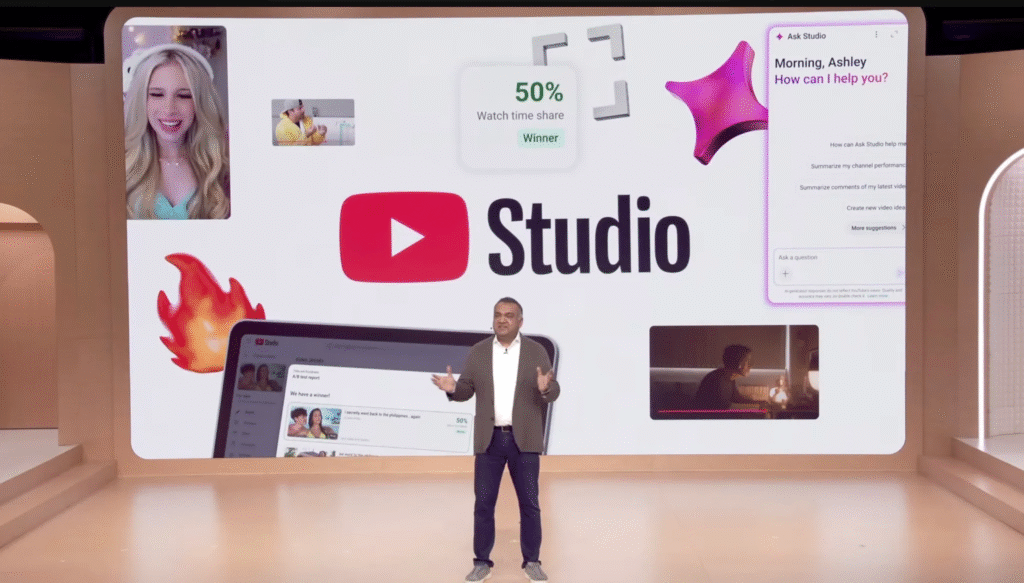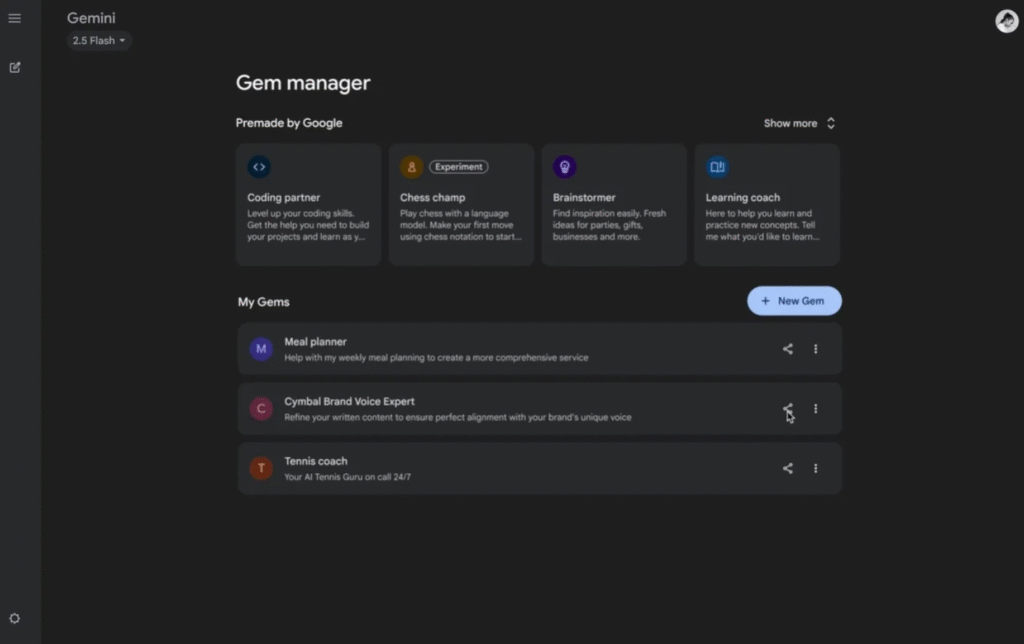YouTube Unleashes Next-Gen AI and Creator Tools at Made on YouTube 2025
At its annual Made on YouTube event, YouTube unveiled a slew of new features and AI-powered tools aimed at enhancing the creator experience. Updates to YouTube Studio now include a “likeness” detection feature allowing creators to manage unauthorized use of their facial image, and an AI Ask Studio to assist creators with channel management. Collaborative video creation with up to five creators on one video is also now possible.

YouTube Live received new interactive features such as minigames and AI-generated highlights that automatically create sharable clips from livestreams. The Shorts platform is enhanced with a custom Google AI video generation model, Veo 3 Fast, enabling creators to add motion, styles, and objects to videos via simple text prompts. Monetization options have expanded, including new brand deal tools, product tagging, and AI-powered product tag timing to help creators maximize revenue from their content. Additionally, YouTube Music introduced fan engagement features like exclusive merchandise drops and countdown timers for new releases. These innovations collectively empower creators with smarter tools to grow and monetize their audiences effectively
Meta Connect 2025: Next-Gen Smart Glasses and AI Wearables Take Center Stage
At Meta Connect 2025, Mark Zuckerberg unveiled Meta’s latest lineup of AI-powered smart glasses and wearables, underscoring the company’s ambition to lead in AI wearables technology. The second-generation Ray-Ban Meta glasses offer double the battery life and enhanced 3K ultra HD video recording, along with features like conversation focus that amplifies nearby voices. Despite a live demo hiccup with the AI assistant during the event, Meta showcased promising innovations.

The event also introduced the Meta Ray-Ban Display, featuring an integrated display on one lens paired with the Meta Neural Band wristband controller, enabling advanced gesture-based interactions like writing text in the air. Designed for athletes, the Oakley Meta Vanguard smart glasses provide high-resolution video capture, music playback, and integration with fitness apps, while offering rugged durability and long battery life. Notably, Meta did not announce new VR headsets, focusing instead on smart glasses as a potential future smartphone replacement.
Huawei Unveils AI SuperPoD Tech as Nvidia Faces China Ban
Huawei announced a major new AI infrastructure technology called SuperPoD Interconnect at its Huawei Connect conference, designed to link up to 15,000 graphics cards—including its own Ascend AI chips—to boost compute power for AI training and scaling. This technology aims to rival Nvidia’s NVLink system by enabling high-speed communication between clustered AI chips, giving Huawei a competitive edge in the semiconductor market.

The announcement comes shortly after China imposed a ban on domestic tech companies purchasing Nvidia hardware, including Nvidia’s RTX Pro 6000 servers tailored for the Chinese market. While Huawei’s chips lag behind Nvidia’s in raw power, the ability to cluster multiple chips together with SuperPoD infrastructure allows users to harness greater collective computing performance, critical for advancing AI capabilities domestically and internationally.
Google Makes Sharing Custom Gemini AI Assistants as Easy as Google Drive
Google has introduced a new feature allowing users to share their custom Gemini AI assistants, called Gems, as effortlessly as sharing files on Google Drive. Gems are AI chatbots tailored for specific tasks such as learning coaching, brainstorming, career guidance, writing editing, and coding assistance. Initially available to Gemini Advanced subscribers, this sharing capability now extends to all users, enhancing collaboration by letting friends, family, or coworkers use and edit shared Gems.

This update aims to reduce duplicated effort in building similar AI assistants and fosters collaborative use cases like family vacation planning, meal prep, and group writing projects. Users can control access permissions when sharing Gems via a web-based Gem manager, promoting flexible management and wider adoption of personalized AI helpers.
Nvidia Invests $5 Billion in Intel to Power Next-Gen AI Chips
Nvidia has purchased a $5 billion stake in Intel, acquiring about 4% of the company, as part of a strategic collaboration to develop multiple generations of AI-focused data center and PC products. The partnership will integrate Intel’s and Nvidia’s architectures using Nvidia’s high-speed NVLink interface, enabling faster communication between CPUs and GPUs crucial for AI workloads.

Intel will manufacture custom x86 CPUs optimized for Nvidia’s AI infrastructure for enterprise clients, while also producing x86 system-on-chips embedding Nvidia’s RTX GPUs aimed at the consumer PC market. The jointly developed “x86 RTX SoCs” are expected to enhance Intel’s competitiveness against rivals like AMD. This move comes as Nvidia continues to dominate the AI chip space, while Intel seeks to regain momentum by leveraging Nvidia’s AI leadership and technology.
